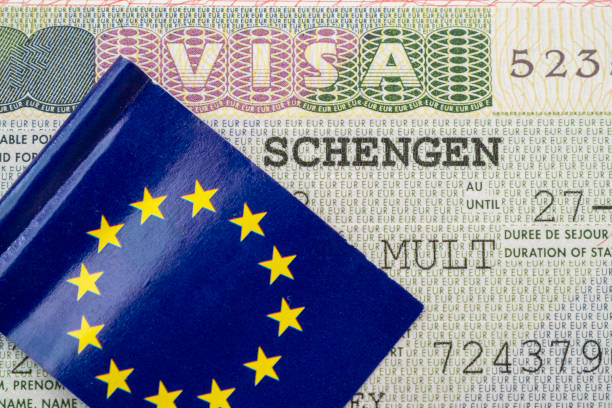If you’re a Nigerian citizen looking to explore the enchanting cities of Europe, the Schengen visa is your golden ticket. The Schengen visa allows you to travel within the Schengen Area, comprising 26 European countries which are Austria, Belgium, Czech Republic, Denmark, Estonia, Finland, France, Germany, Greece, Hungary, Iceland, Italy, Latvia, Liechtenstein, Lithuania, Luxembourg, Malta, Netherlands, Norway, Poland, Portugal, Slovakia, Slovenia, Spain, Sweden, and Switzerland, for tourism, business, or family visits. In this comprehensive guide, we will walk you through the process of applying for a Schengen visa as a Nigerian. Whether you’re planning a romantic getaway to Paris, a business trip to Berlin, or an adventure in Rome, we’ve got you covered.
What is a Schengen Visa?
A Schengen visa is a short-stay visa that grants you access to most European countries. It’s a single visa that simplifies travel within the Schengen Area. With a Schengen visa, you can explore iconic destinations like France, Italy, Spain, and more, all with a single visa application.
Determine Your Purpose of Travel
Before you begin your Schengen visa application, it’s essential to determine the purpose of your visit. Schengen visas are typically categorized into three main types:
1. Tourist Visa
If you’re planning a vacation or leisure trip, the tourist visa is the one for you. It allows you to explore the cultural and historical wonders of Europe.
2. Business Visa
For business-related activities such as meetings, conferences, or negotiations, you should apply for a Schengen business visa.
3. Family Visit Visa
If you have family members residing in a Schengen country and wish to visit them, the family visit visa is what you need.
Research Your Destination
Once you’ve decided on the purpose of your visit, it’s time to choose your destination. Europe offers a diverse range of experiences, from the romantic streets of Paris to the historic ruins of Athens. Make sure you research the specific requirements of the country you plan to visit, as some countries have unique visa application processes.
Gather Required Documents
To complete your Schengen visa application, you’ll need a set of essential documents. These documents typically include:
1. Visa Application Form
You’ll need to fill out a Schengen visa application form. Ensure you provide accurate and consistent information throughout the application.
2. Valid Passport
Your passport must be valid for at least three months beyond your intended departure from the Schengen Area and have at least two blank pages for visa stamps.
3. Passport Photos
Most countries require two recent passport-sized photos, meeting specific size and background color requirements.
4. Travel Itinerary
Prepare a detailed travel itinerary, including your flight and accommodation reservations. This demonstrates your travel plans and ensures a smoother visa approval process.
5. Proof of Accommodation
Provide confirmation of your hotel reservations or a letter of invitation from your host if you’re staying with friends or family.
6. Travel Insurance
Obtain travel insurance with a minimum coverage of 30,000 euros. This insurance should cover medical emergencies and repatriation.
7. Proof of Financial Means
Show that you can financially support your trip by providing bank statements, a letter of employment, or proof of business registration (for business travelers).
8. No Objection Letter
If you’re employed, obtain a ‘No Objection Letter’ from your employer, stating your leave dates and the purpose of your visit.
9. Additional Documents
Depending on your specific circumstances, you may need additional documents. For example, students may require a letter from their educational institution.
Schedule an Appointment
After gathering all the necessary documents, you’ll need to schedule an appointment with the respective Schengen visa application center or embassy. Be prepared to pay the visa fee at this stage.
Attend the Visa Interview
During your appointment, you will attend a visa interview. This is your chance to explain the purpose of your trip and provide any additional information requested by the consular officer.
Wait for Processing
Once you’ve submitted your application and attended the interview, it’s time to wait for the processing of your Schengen visa. The processing time varies by country, so be patient.
Receive Your Visa
Upon approval, you’ll receive your Schengen visa stamped in your passport. Ensure all the details are accurate, and check the visa’s validity dates.
Conclusion
Applying for a Schengen visa as a Nigerian may seem like a daunting process, but with the right preparation and documentation, it becomes a manageable task. Remember to determine the purpose of your travel, research your destination, gather the required documents, schedule an appointment, and attend the interview with confidence. Soon, you’ll be on your way to exploring the breathtaking landscapes and rich cultures of Europe.

